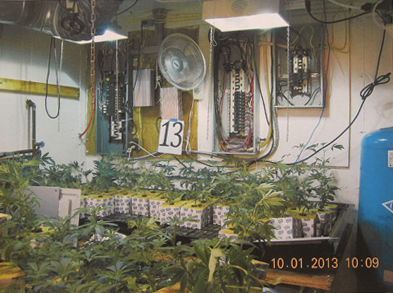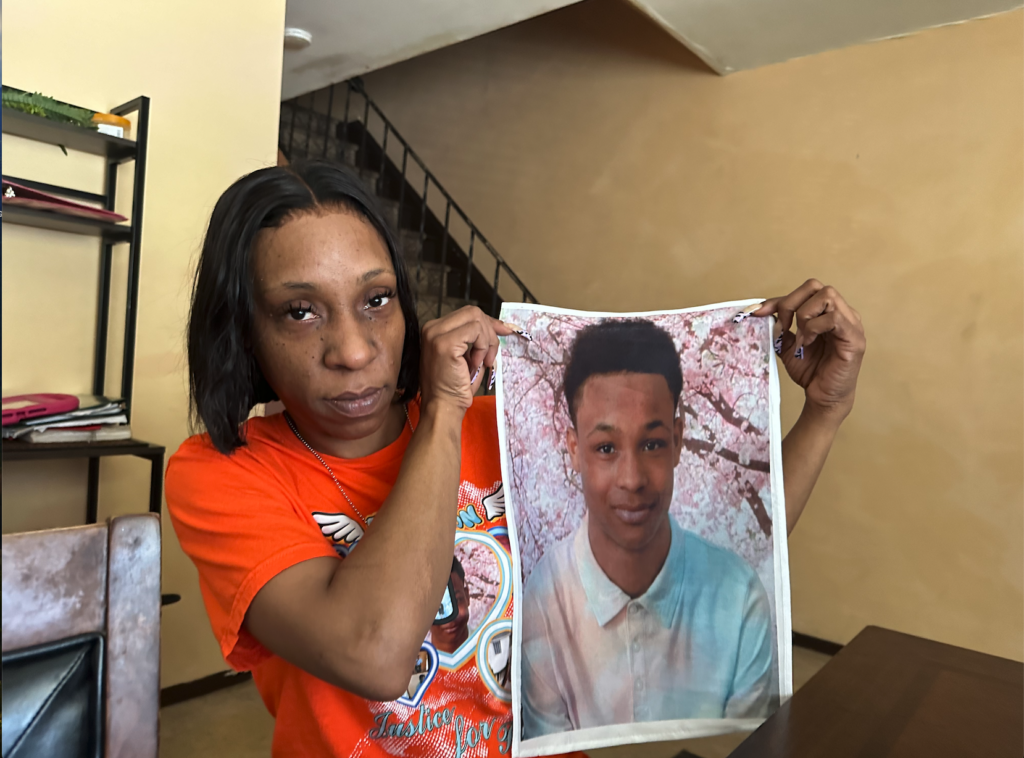Accused marijuana grower released from jail, under house arrest

A Riverhead man accused of growing about $3.8 million worth of marijuana inside a house and other structures on his Riverhead property will be electronically monitored and confined to a friend’s Huntington home after being released from jail on $500,000 bond Friday afternoon.
Edward Dispirito, 70, is facing a federal distribution of a controlled substance charge after Suffolk County police and federal agents raided his two-story Osborn Avenue home Tuesday morning, allegedly finding grow lamps, dry tables, a device to steal electricity and nearly 1,700 marijuana plants, prosecutors said.
Court documents written by an investigator in the case revealed a complex surveillance effort to arrest Mr. Dispirito and his alleged distributor, 55-year-old James Ford.

Mr. Ford, who faces the same charge, was released on $450,000 bail Tuesday.
Mr. Dispirito — a “self-employed” garbage contractor, according to his attorney, Patrick Broderick in Hauppauge — faces 10 years to life in prison if convicted.
Dressed in an orange jumpsuit, a gray-haired Mr. Dispirito sat in U.S. District court in Central Islip Friday as two of his sisters, his son, and a friend watched from the gallery.
Assistant U.S. Attorney Burton Ryan asked Magistrate Kathleen Tomlinson to hold Mr. Dispirito without bail, arguing that the man represented a risk to the public and could use reserves of cash earned illegally in the marijuana operation to finance an escape.
Mr. Ryan said the evidence obtained in the case — including stickers law enforcement say were used to brand the pot — indicate Mr. Dispirito was not acting alone.
“Millions of dollars have been generated in plants and sold through that house,” Mr. Ryan said, adding that the potential for a severe sentence may incentivize the defendant to flee. “It is clear… that this is part of a larger organized system.”
RELATED: INSIDE THE POLICE INVESTIGATION
But Mr. Broderick argued the prosecution’s evidence wasn’t as strong as it appeared, telling Judge Tomlinson that he has only seen evidence of a few hundred plants and not the 1,689 marijuana plants law enforcement say they found inside the house.
“They must be counting the leaves here,” he said.
Mr. Broderick also claimed the crime did not deserve to be prosecuted as harshly.
“It’s a marijuana grow house,” he said. “There’s not a county in this country that doesn’t have a grow house … [Mr. Dispirito] is not going anywhere.”
Judge Tomlinson said she could not rule on the validity of the law, only enforce it, noting, “The law here is what the law is.”
The judge set Mr. Dispirito’s bond at $500,000, saying that she didn’t see a clear risk of Mr. Dispirito fleeing the law.
She then spoke with Mr. Dispirito’s two sisters in attendance — Constance Dispirito and Delores Dispirito — as well as a friend, Loretta Brady. A third sister was unable to attend due to a serious heart condition, the defense attorney said.
The three in court offered up property to fund Mr. Dispirito’s release.
Delores Dispirito told the judge that the siblings’ mother had been ill recently, and described how Mr. Dispirito helped care for their mother until her death earlier this year.
“This isn’t a man I would consider a risk,” Ms. Dispirito said.
The court released Mr. Dispirito, but took away his passport and confined him to Ms. Brady’s house, attaching an electronic monitoring device to ensure he remained under house arrest until the trial. The judge also forbid Mr. Dispirito from speaking with witnesses or his co-conspirators in the case, must submit to random drug testing, and is not allowed to make financial transfers without the permission of the court.
Mr. Despirito sat quietly as the conditions of his release were read, lowering his head and shaking it slowly.
After court concluded, Ms. Brady declined to comment on Mr. Broderick’s accusations that the prosecution was exaggerating evidence.
Mr. Broderick after court said Mr. Dispirito had used the funds from his operation to pay for his mother’s care. Mr. Broderick said the prosecution would not be able to prove that Mr. Despirito had sold the drugs, only that he grew them.
“He wasn’t giving it to kids. He wasn’t distributing it,” Mr. Broderick said. “This is a possessional marijuana case.”
Mr. Broderick also said his client posed no risk to the community.
“There’s no violence, there’s no guns, there’s no weapons, there’s no money laundering,” he said.
Ms. Brady said the case wasn’t worthy of the attention it was getting, saying news outlets should “tone down” their coverage. Meanwhile, Constance Dispirito, defended her brother and played down the charges against him.
“He’s my brother and we know him and we love him,” she said.
A News-Review story published earlier Friday incorrectly reported the ages of Mr. Dispirito and Mr. Ford.
TIMELINE OF EVENTS:
Click right side of column below to advance timeline ↘








